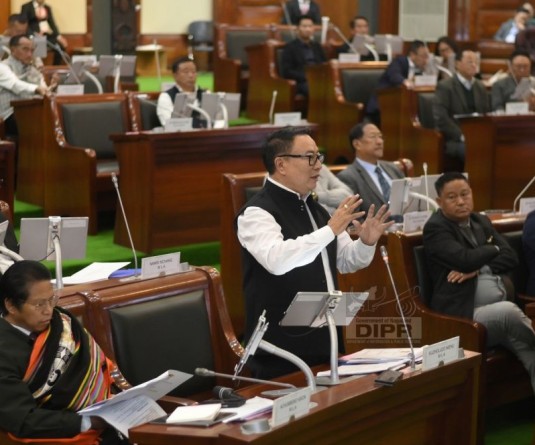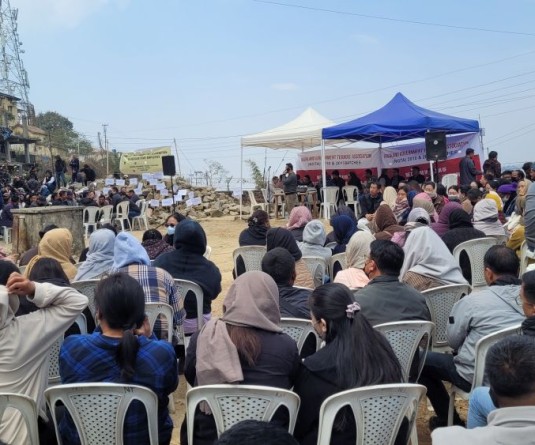
Dimapur, March 14 (MExN): The threshold of Nagaland, which popularly got its name as the state’s ‘commercial hub’ has become an attractive site for many young Naga entrepreneurs. Dimapur, with its ever growing population of diverse people, coupled with mushrooming schools, colleges, vocational institutes, and offices, offers a wide range of options for business establishments and entrepreneurs.
In recent years, the city has evolved from a small town to a bustling city with myriad events and commercial activities. But it still has a long way to go, say some professionals.
Contrary to the last many years, the trend among Nagas investing in big business has gained popularity. This practice is also a shift from the conventional Naga way of solely depending on the government for employment. “Government jobs are getting stagnant. People cannot rely on government jobs only,” says Jethro Merry, owner of the Live Sound Music Store.
While agreeing there has been a boom in local business lately, Jethro says hurdles continue to exist. “The most important thing in business is location. And 90% of business along the city centre’s main road, Church Road, is occupied by non-Nagas. So 90% of profit is earned by them.”
Akum Jamir, owner of Crescendo, on the other hand says that there are few “true” young Naga entrepreneurs, meaning that very few people establish businesses of their own. He also points out that many non-Naga enterprises are set up under a Naga banner for “security” reasons.
This city, like others, is not devoid of challenges for entrepreneurs. One factor, Akum points out is the “Underground tax”, which is a yearly tax that business establishments have to pay in addition to the numerous collections asked by different factions. “If it is one group, we don’t mind giving, but there are already three – four factions in Dimapur,” he says. The other caveat in the tax is that it does not operate along a formal and regulated system. One is taxed according to a visual assessment of the “size” and “sight” of their business. “If they think your showroom is worth taxing Rs 50,000, they will write you a slip worth that,” says Akum adding that it is also one of the reasons people do not want to open big showrooms. Acknowledging that one does not always give in to the demands, he says negotiating with them “disturbs peace of mind and functioning of business.” But, it may be added that you could end up paying “nominal” amount if you have good “connections” in the factions.
The most affected people in the game seem to be the ones who run their businesses on electricity.
This, unlike tax, is non-negotiable. “Somebody who is interested in an electricity-related business should go outside Nagaland,” warns Akum who also owns a recording studio. Maintaining the studio solely depends on the availability of electricity, he says. It is not feasible to use generator all the time, and the loss incurred is heavy. The actual time taken to record a music album is about two weeks, but due to inconsistent power supply, it stretches into three to four weeks. Hence, the loss incurred is 50%. Loss is not limited to business establishments. People who travel from other districts to this “commercial hub” also bear the brunt, waiting for electricity to wrap up work. Loss, for them, is both monetary and spatial.






